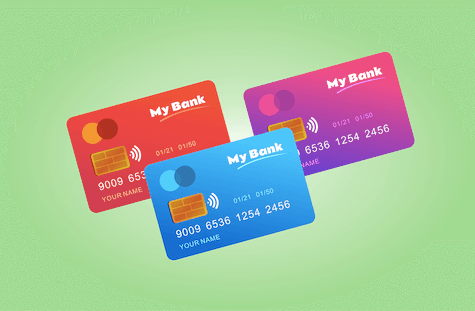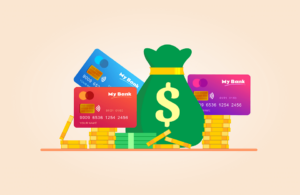A debt consolidation loan is a type of personal loan that allows you to combine multiple debts into one loan payment, rather than having to make multiple repayments on several loans each month. Depending on how much debt you have and how many loans you have outstanding, you could end up saving money in the long run.
According to Experian, total consumer debt balances has increased to $16.38 trillion this year. Debt consolidation loans can therefore offer a useful way to stay on top of all your outstanding payments. With this in mind, Finger Finance reveals the ins and outs of debt consolidation loans and how they work.
What Are Debt Consolidation Loans?
Debt consolidation loans help those who have lots of different loan or credit commitments and are struggling to keep up with repayments. This financial product offers borrowers the opportunity to merge all their debts together into 1 loan. This means that the borrower will only owe money to 1 lender, rather than multiple different ones.
It is also likely that getting 1 debt consolidation loan should help to lower your monthly payments. This is because you will only have 1 lot of interest charges and loan fees, as opposed to many different ones from multiple outstanding debts.
When Should I Get A Debt Consolidation Loan?
There are several factors that can influence whether a debt consolidation loan is the right option for you. For example, if you can get a lower interest rate on the loan than what you currently pay across multiple loans, this is an advantage in the long run. The average interest for a credit card ranges from 14.5% to 19.8%, so if you are able to get a debt consolidation loan at a 12% rate, you should be saving money on your monthly repayments.
Debt consolidation loans should only be used if you have a strategy in place to effectively budget each month to avoid adding to your existing debt balance. It is also important that if you take out this type of loan that you can afford to make the monthly repayments, as you are committing to paying off one balance, rather than being able to pay off one loan at a time.
If you have a good credit score and can qualify for a low interest personal loan, a debt consolidation loan may be right for you. Bad credit scores can severely impact the rate of interest you can qualify for, and so the total amount may end up similar or more than it was before.
However, even with a bad credit score, if you find that having multiple payday or installment loans is causing your finances to spiral out of control, having all your loans paid off in one payment each month could help you gain more control of your finances once more. Of course, this is entirely based on the individual, so make sure you explore your options before proceeding with this type of loan.
How Can I Get A Debt Consolidation Loan?
There are several broker and direct lender sites that will allow you to get prequalified for a debt consolidation loan before actually going ahead with a full application. The initial prequalification will usually involve filling in personal details which can include a valid drivers license, proof of income such as a bank statement, proof of residence, along with other factors such as age, email, phone number.
The application that gets filled in usually comes with a soft credit search, which does not impact your credit score. Lenders that do not offer the ability to be prequalified should most likely be avoided.
Make sure when applying for a debt consolidation loan that the total cost of the loan does not exceed what you currently would pay across your credit cards and other loan amounts. Merging all debts into one payment can lead to issues if you cannot afford the monthly repayments you commit to.
There are two different types of debt consolidation loans, and you should be aware of which one you choose to use. Secured loans will be backed by a physical asset such as your home, which serves as collateral if the loan amount cannot be paid off. Unsecured loans come with less risk, as they will not be backed by physical assets, but because of this, will typically have higher interest rates and lower amounts that can be borrowed.
A benefit of debt consolidation loans is that much like installment loans, once you get approved, the rates are fixed. This means you will not have to worry about varied monthly repayments compared to credit card debt.
Understanding Terminology Around Debt Consolidation Loans
When looking for a debt consolidation loan, there is a lot to understand when it comes to the fine print. Have a look below which should help you understand what these terms mean:
APR – Total cost of the interest to borrow the loan amount. Some lenders charge origination fees, which is the cost of processing the loan, which would also be included in the APR.
Principal – The amount that you initially need to borrow, excluding any interest payments. The amount you can borrow will vary based on your income, credit score, age, location and level of employment typically, but many lenders allow you to borrow up to a maximum of $35,000.
Term – The length of time you are looking to take out a loan across. This can vary, but will normally be up to a maximum term of 60 months or 5 years. Please note that the length of the term determines how long you will have to pay interest back over, so you will end up paying more back over a 60 month term than a 36 month term.
Concluding Thoughts
If you are looking to take out a debt consolidation loan in the near future, make sure that you can afford the monthly repayments and that the term is more favorable than the current loans you have outstanding.




